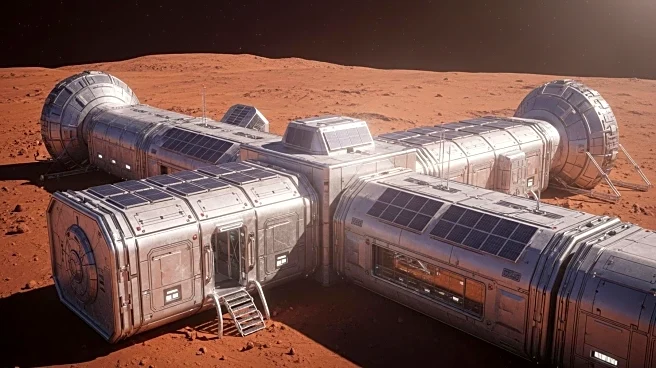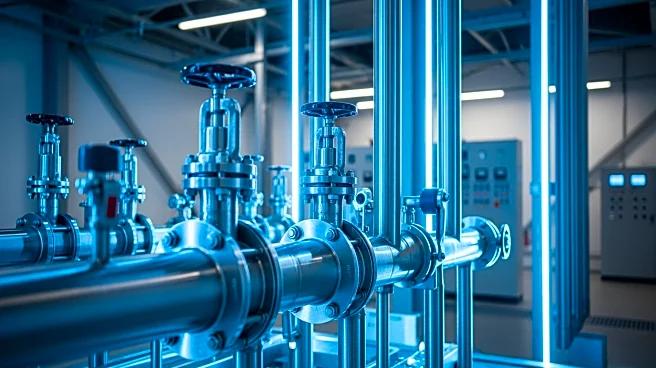What's Happening?
Building settlements on Mars presents unique challenges due to the planet's lack of natural resources and the difficulty of transporting supplies from Earth. Future Martian settlements will rely heavily on in-situ resource utilization, using available materials like water, carbon dioxide, and Martian soil. Plans include using nuclear reactors for power and developing techniques to manufacture essential materials on Mars. Innovations such as mycotecture, which involves growing structures using fungus, are being explored to create sustainable habitats.
Why It's Important?
The development of self-sustaining settlements on Mars is crucial for long-term human presence on the planet. This endeavor requires significant advancements in technology and resource management, which could have broader implications for space exploration and colonization. Success in these areas could pave the way for future missions to other planets and contribute to our understanding of sustainable living in extreme environments.
Beyond the Headlines
The ethical and environmental implications of colonizing Mars are significant. The use of nuclear power and the impact of human activity on the Martian environment must be carefully considered. Additionally, the cultural and societal aspects of establishing a human presence on another planet raise questions about governance, resource allocation, and the preservation of Martian landscapes.











